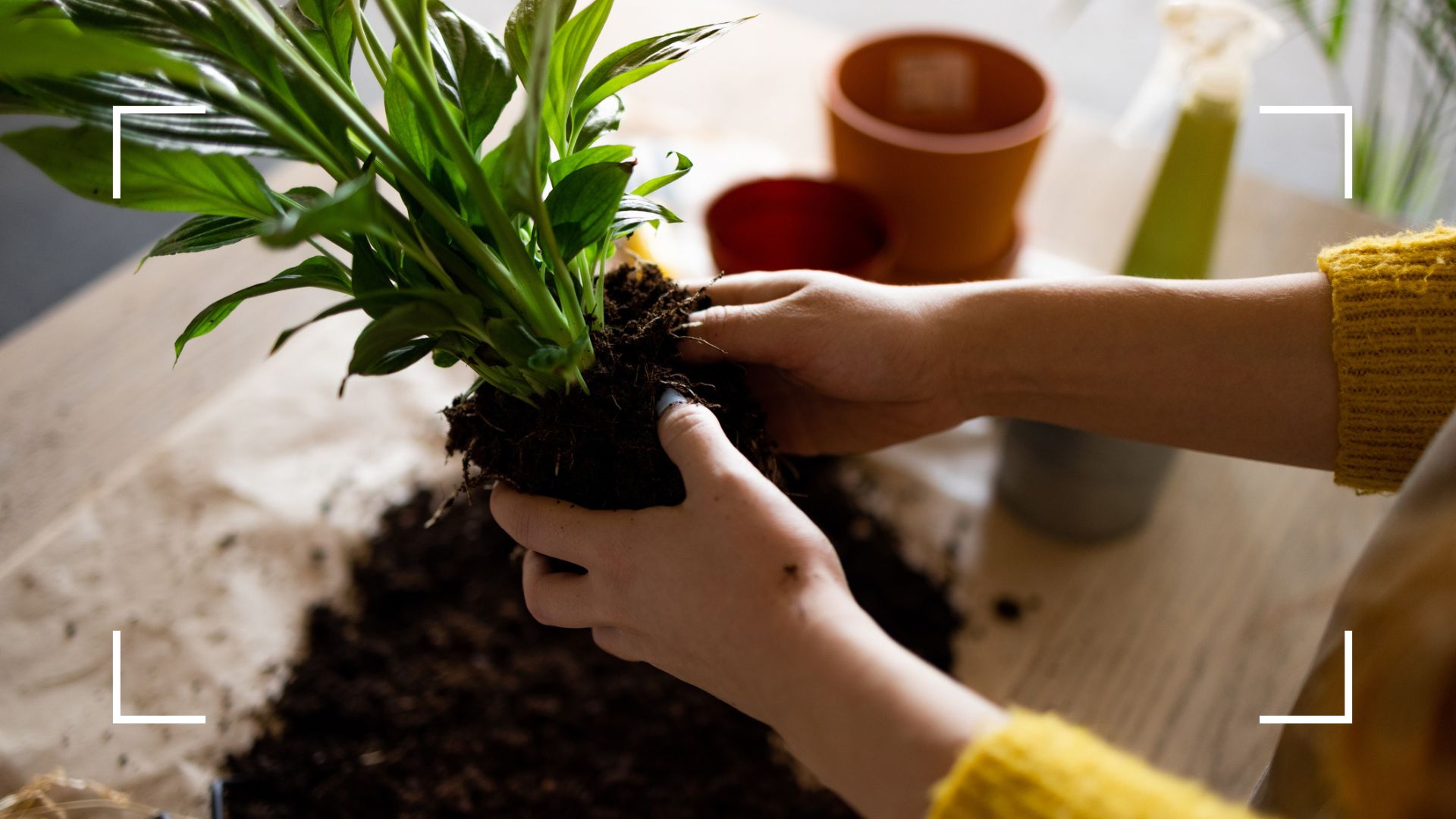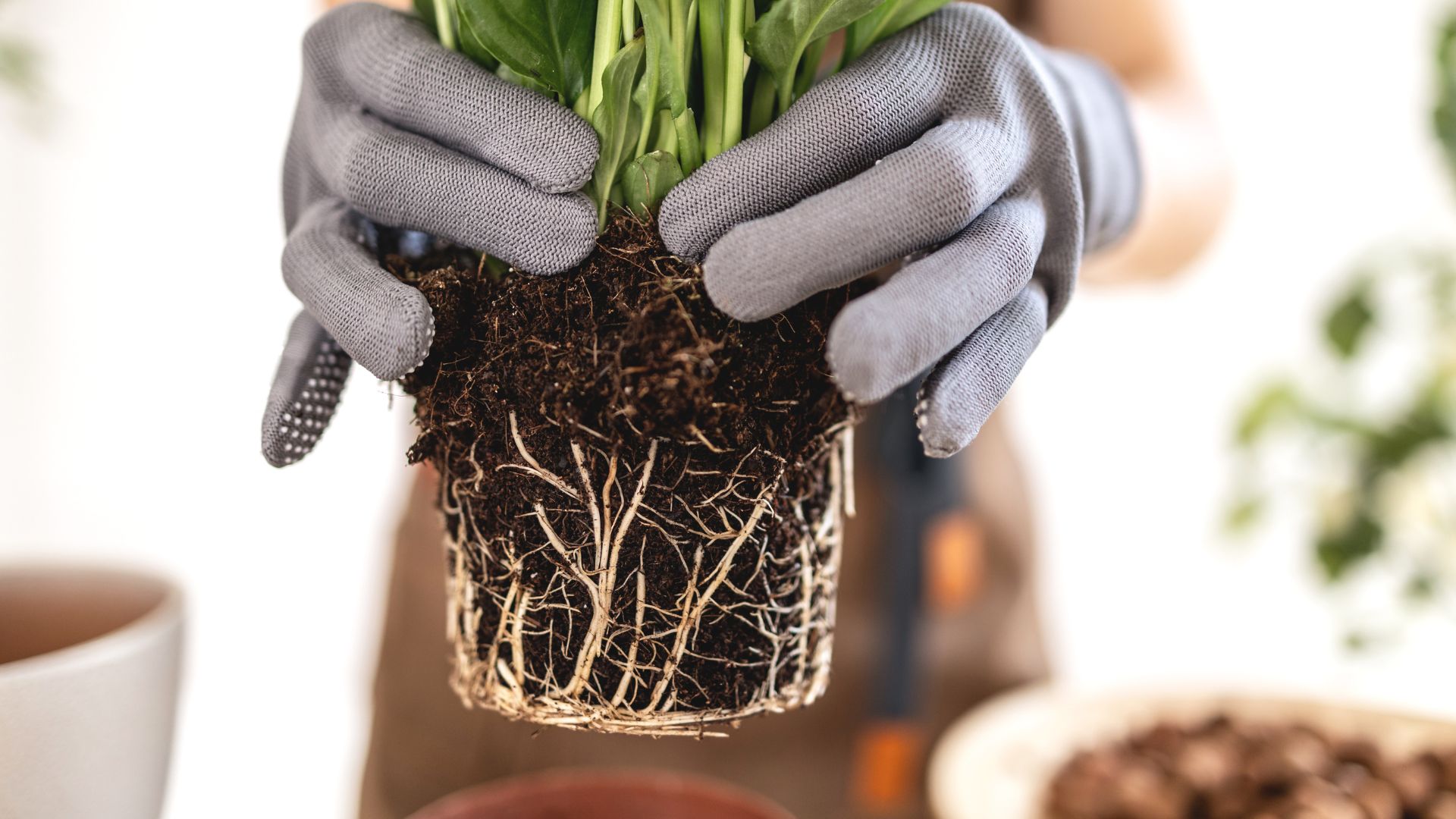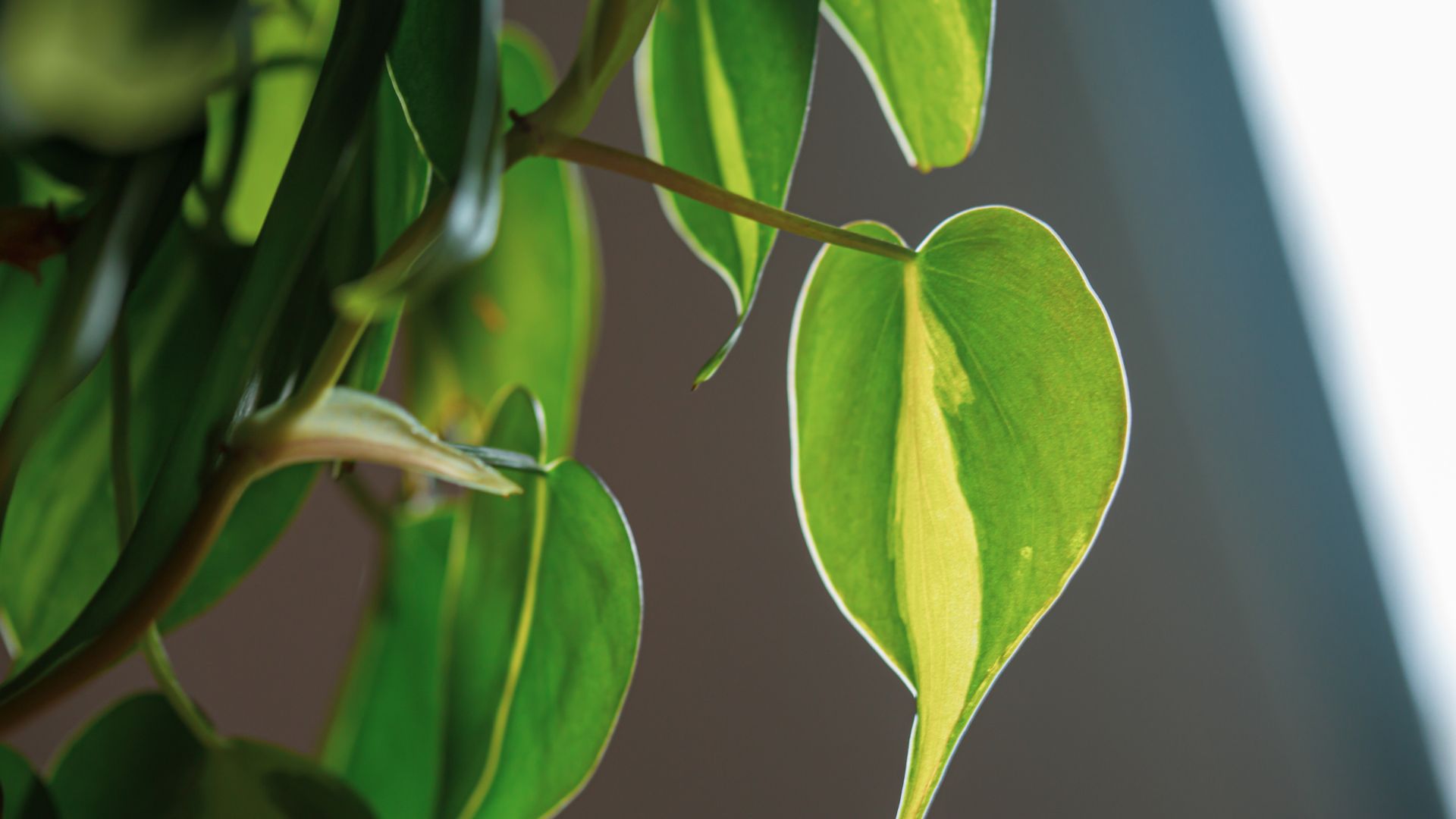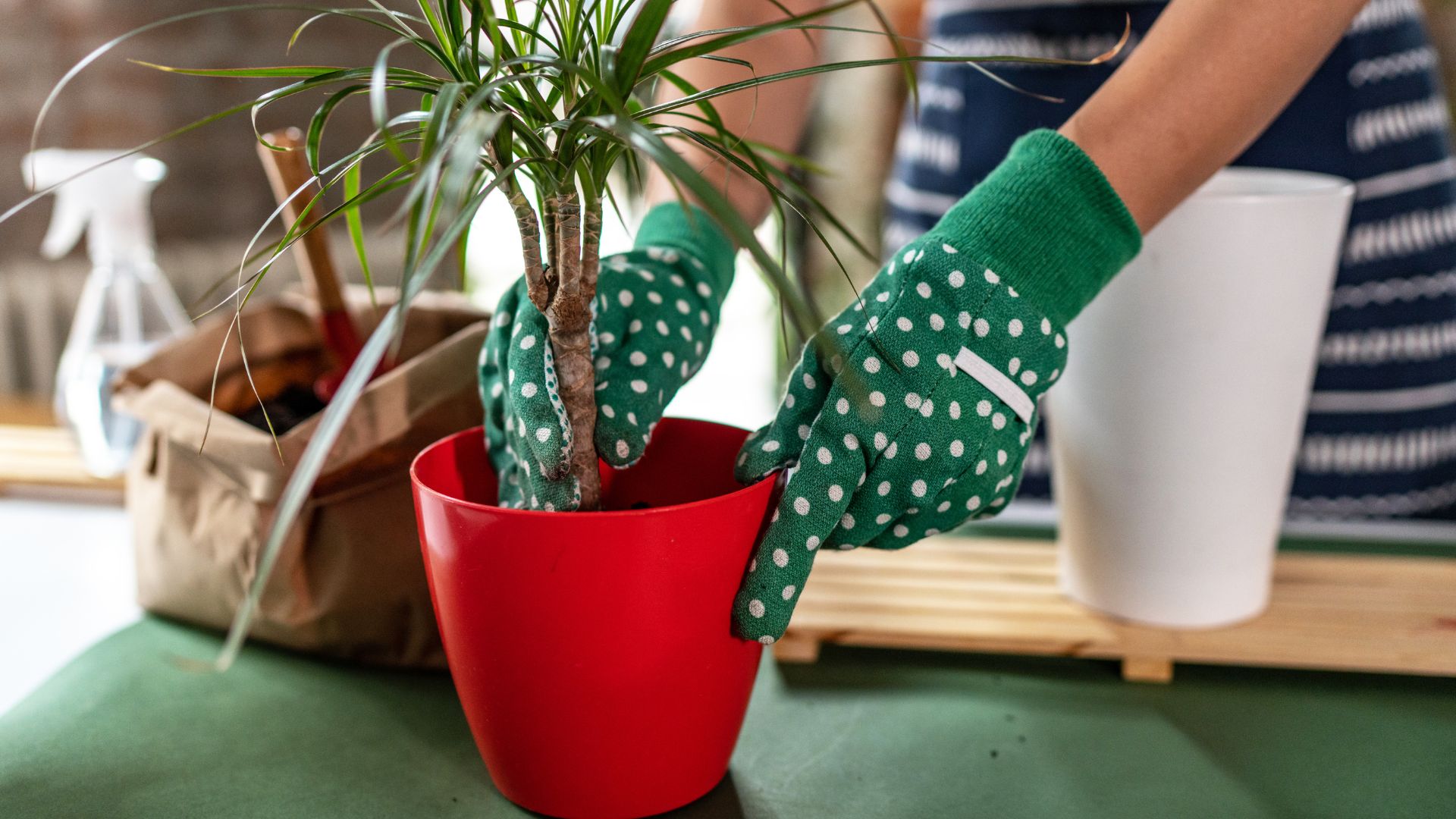
Knowing when our plants have outgrown their homes can feel like a mystery without proper knowledge of their warning signs, it can often lead to a rather sad-looking plant or worse, their demise. So when should we be upgrading their accommodation?
Even when you've avoided the most common houseplant mistakes and established a perfect watering routine, plants can still find a reason to be unhappy. One of these reasons is that they've outgrown their home, and maybe even become rootbound.
Whilst it can be difficult to know exactly when to repot your houseplant, no matter the species, there are luckily some universal warning signs that mean you have the go-ahead.
To help we've asked horticulture experts what the telltale signs are along with the best steps to take going forward, including how to repot houseplants with due care.
How do you know when to repot your houseplants?
It isn't always the most obvious thing that indicates when to repot your houseplants, unlike when your peace lily's tips turn brown or your cactus starts growing mould on the top of its soil.
A plant can do a pretty good job of hiding that it needs to be repotted but if you know what to look out for you can avoid disaster.
1. Overgrown roots

The most obvious sign that your plant needs a pot upgrade is when its roots begin to escape out of the pot looking for any extra space. Overgrown roots aren't just an indoor plant problem either, it can also be the reason why your bay tree leaves are turning brown.
"The most obvious way is by seeing roots coming out of the drainage holes at the bottom of the pot. Also if a plant is looking poorly, yellowing leaves, stunted growth and it's being fed and watered properly then it will need more compost, therefore a bigger pot is needed," explains Miracle Gro's gardening guru Kate Turner.
We'd recommend checking your plant's roots every few months and not letting it sit with overgrown roots for long or it might lead to root rot or other issues.
2. Soil level will drop
Another clear physical sign that your plant needs some maintenance and a new pot, is if the soil level begins to drastically drop. Whilst soil levels dropping is very normal, it can also be a sign that your plant is due a refresh.
Kelly Dyer, Plant Doctor and Lead Horticulturalist at Patch Plants says, "Soil will start to break down over time and you will see that the soil level in your pot starts to drop. A healthy soil structure is really important for carrying water and nutrients to the roots of your plant, so this is a sure sign that your plant needs repotting."
Knowing how to repot a plant is a key part of how to care for both your indoor and outdoor plants and ensure they have the nutrients to grow to their potential.
3. Lack of new growth

A less noticeable sign and one that will take a little longer to notice is if the growth of your plant is stunted. Whether you're learning how to care for a peace lily or how to care for an orchid, the ultimate goal is to always see new growth.
"If you know your plant hasn’t been repotted for a few years and it has stopped putting on any new growth. This will mean it’s used up all of the nutrients that were originally available in its soil," explains Kelly.
Without those fresh nutrients, your plant simply won't have the means to get any bigger and whilst it might not show signs of struggling with drooping or yellowing leaves, it will pause growing altogether.
Why should you repot a houseplant?
Whether you collect plants that help with condensation or prefer fragrant plants that make your house smell good, they will all need repotting at some point in their life.
Fiona Jenkins, gardening expert from MyJobQuote, explains just how important it is to repot your plants when they need it. "For a plant to live long, you must repot it. Over time, its roots outgrow its current container, causing overcrowding and nutrient depletion. With repotting, roots have enough room to expand and nutrients are replenished, so they grow healthy," she says.
Can you repot a plant too early?
Similar to how often you should water your indoor plants, repotting your plants too often can have negative effects on your plant's growth.
"Plants only need repotting once they’ve started to outgrow the size of the pot. If the plant is still young, it won’t have established roots yet, so you’re best to leave it alone. Typically, you shouldn’t need to repot your plant in the first year of having it and some slow-growing plants may not need repotting for two or three years," says Fiona.
This isn't quite the case for all plants and situations. Fiona explains that garden centres will often reduce the price of plants that aren't in peak condition, whether that's because they're pot-bound or not, so it's advisable that you repot it after a few weeks of owning it. She says this will help your plant acclimatise first and reduce the amount of stress on the new plant.
"There can be other reasons for delaying repotting. For instance, spider plants tend to send out more shoots with spider babies on them when they’re slightly pot-bound. So, you might decide to delay repotting in order to gain some new houseplants," Fiona states.

Having a home filled with the best plants for your health and wellbeing is great for many reasons, you just need to ensure you're maintaining the plant's health as well as you can. Whether that's knowing how to clean plant leaves or keeping the pests away.







